
5 minute read
A World Of Change
Taking action can help with ensuring a sense of optimism in a climate of fear. Erin McDaid, Head of Communications & Marketing, Nottinghamshire Wildlife Trust.
When news is as bad as was contained in the latest report of the Intergovernmental Panel on Climate Change (IPCC), the world’s leading authority on climate science, it can be difficult to identify and focus on slivers of positivity; but for me the fact that this latest report received so much coverage gives room for hope. Since the 1990s these reports have been issued, acknowledged and frankly largely ignored. Whilst it has long been recognised by governments as well as climate scientists that urgent action is needed, political expediency and survival have been put before efforts to reverse man’s impact on global warming and to secure the survival of people and planet.
Whilst the latest headlines are worse than those generated by the last such report in 2013, they come at a time when evidence of the effects the report spells out are there for all to see and sadly for many to suffer. Unprecedented floods and wild fires have been in the news for weeks and we’ve all experienced heat waves and deluges that can no longer be cast aside of one-off events.
Prior to the pandemic, calls for action on climate change were very much in the headlines and it seemed that enough people were finally primed to act and to make clear to our political leaders that we wanted to see leadership to protect the environment we all depend upon. This report has refocussed people’s minds on our long-term challenge after a difficult period for all.
When the news is so stark it can be hard to plot a path of hope, but the level of coverage and the tone of initial reactions from politicians suggest that the much needed wind of change might finally be about to blow in. With the COP26 international climate conference set to be hosted by the UK in Glasgow in just a matter of weeks we have to hope that our government, which has very much been ‘talking the talk’, finally starts to ‘walk the walk’ in a meaningful and concerted way. Future targets are all well and good, but they must be backed with action plans and the kickoff point for necessary action has long since passed.
The other glimmer of hope amongst the dense and largely depressing body of evidence compiled by the IPCC is that whilst our dithering and dallying means we cannot prevent some further changes in extreme weather conditions and sea level rises, we may be able to keep these changes manageable and liveable if we act now – we still have time to prevent the worst case scenarios.
The report makes clear that any additional warming has an impact and conversely any efforts to reduce warming are therefore worthwhile. Against the backdrop of unequivocal evidence of damaging and destructive climate change at our collective hands it might seem a forlorn hope that our efforts as individuals can make a difference - but they can - both on a personal level and collectively.
By taking action to reduce your carbon emissions through cutting down on fossil fuel use, reducing waste, buying local produce and making changes in your diet such as limiting your meat consumption you can make a difference alongside others choosing to act. By taking action you can also take comfort that you are doing what you can.
Some would argue that in the face of a global catastrophe our efforts as individuals are too small and that even our collective efforts as a small nation are too little too late – but what’s the alternative? Give up, do nothing and make matters worse?
Alongside the realisation that we have damaged our climate, a clearer understanding of how this also impacts the natural systems we rely upon for our survival and on the wildlife we cherish has emerged. There is no escaping the fact that we face both a climate and an ecological crisis but here too there is room for hope. As temperatures have risen and weather become more extreme we have made things more difficult for many species we love and many others we take for granted. But whilst our personal actions to limit and reverse climate change may be too imperceptible to notice, direct action for nature can have almost instant results.
The Wildlife Trust are working to enhance our nature reserves but also working with other landowners, especially farmers, to improve their land for nature too. By making connections between habitat we can create more opportunity for nature to move through the landscape as it seeks to adapt to climate change and other pressures. When areas are given over to nature, wildlife still has the capacity to move in swiftly and provide an almost instant reward as birds and other creatures take up residence. On an individual level a simple bird feeder or nest box or a more considered investment such as a garden pond will, undoubtedly, provide welcome habitat for wildlife and you will be rewarded not just by the knowledge that you are taking action but also with the sights and sounds of the wildlife you’ve taken action to support.
However, whilst taking action is definitely the right thing to do we cannot continue to paper over the cracks or present a rose-tinted picture of the state of our local patch or the planet. More of us need to take action than ever before and that action needs to start today.
For further details about how you can take action for nature visit nottinghamshirewildlife.org/Actions
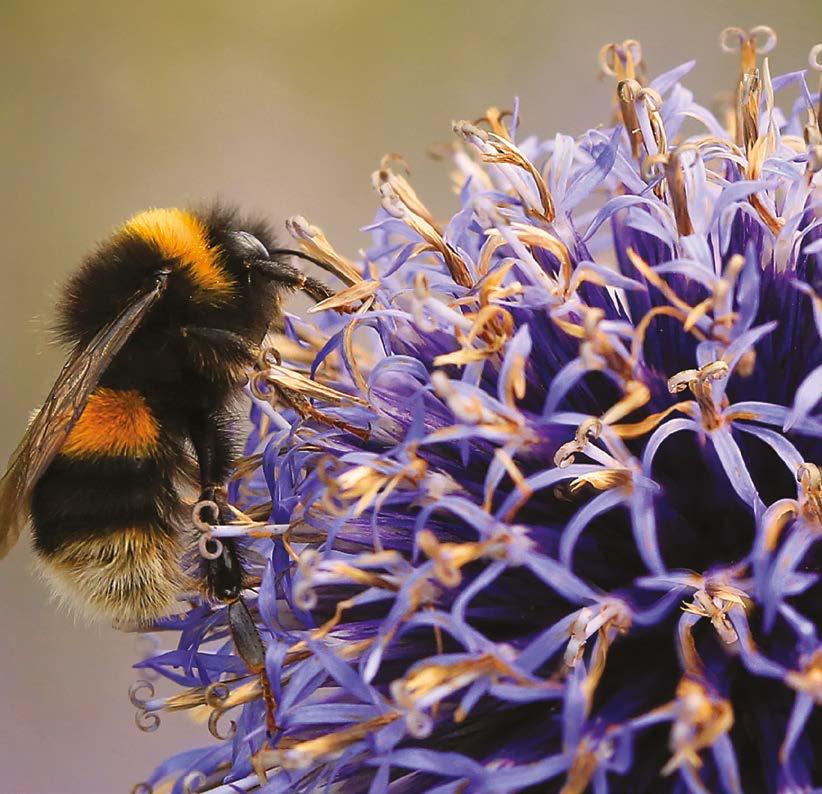
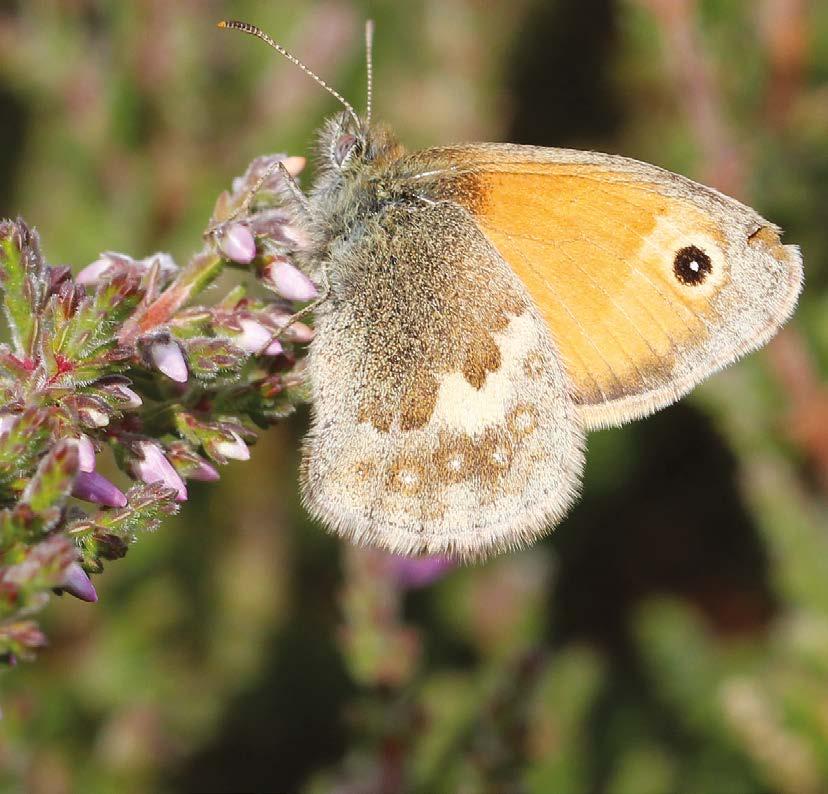
Lapwing – whilst some species drift north or to higher altitudes to cope with rising temperatures some species already depend on northerly territories and relocation is less of an option. Some species adapted to a cooler climate such as lapwing are therefore in decline. (Images courtesy of Mike Vickers and John Tidmarsh.) Bees & butterflies - bees are affected by the disruption of the seasons triggered by climate change and find it hard to feed and nest against a backdrop of unreliable seasons and erratic weather. Bumblebees evolved in relatively cool climates and don’t tolerate heat well. A quarter of European butterfly species and a third of bumblebee species could lose the majority of their range by the end the century. (images courtesy of Jon Hawkins and Michael Walker.)
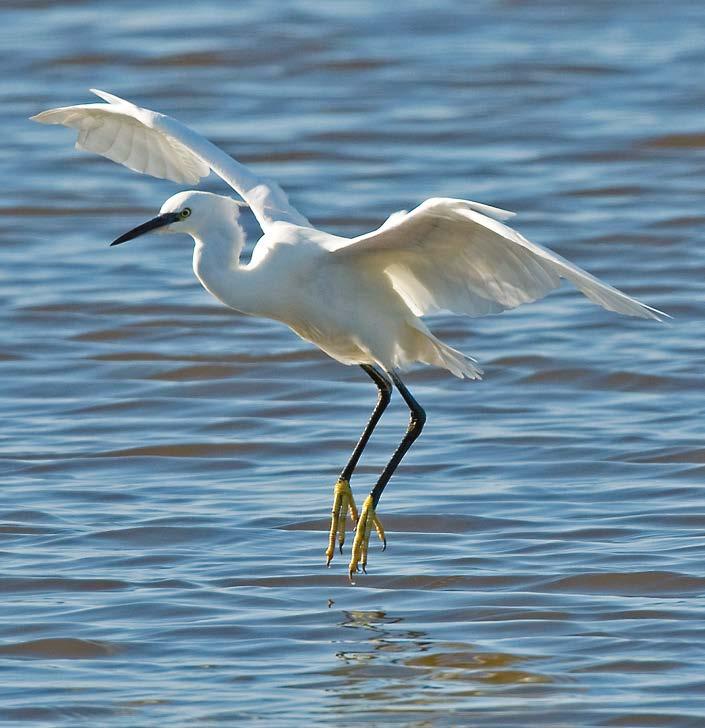
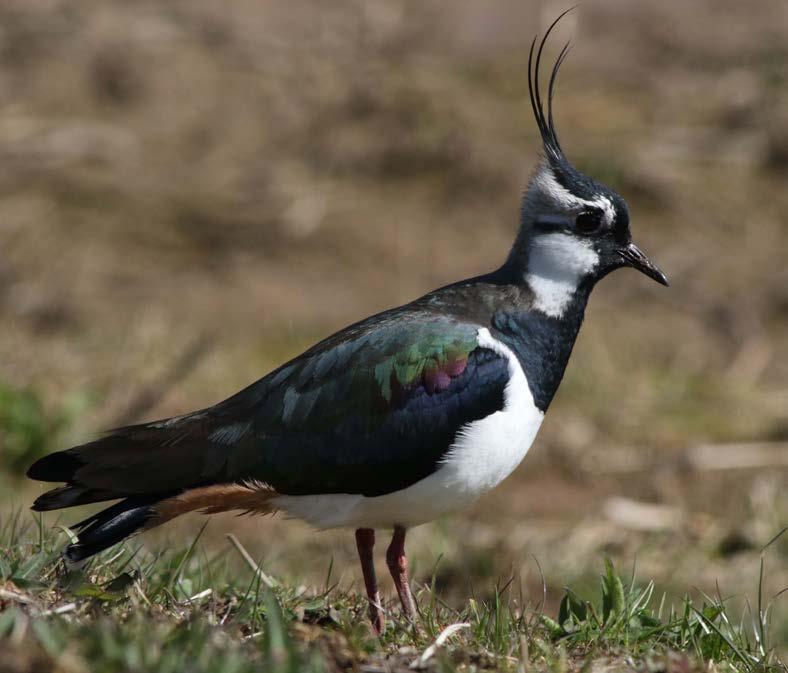
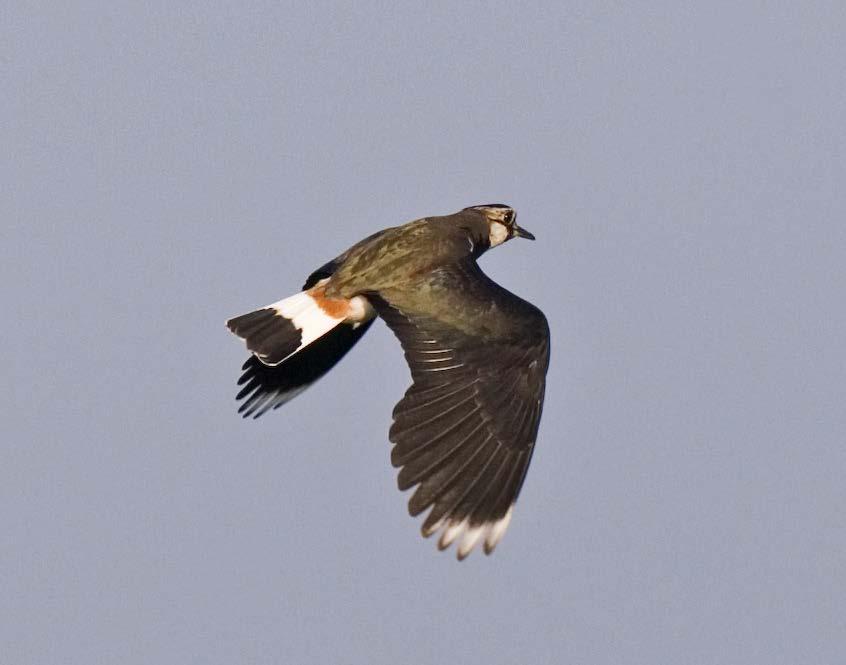
Migrant arrivals - whilst the arrival of species such as great white egret (left) and little egret (right) previously only found in southernEurope and more recently southern England is a boon for the wildlifewatcher – the trend of northerly migration amongst species is a worryingsign that our climate is warming. (Images courtesy of Mike Vickers.)







